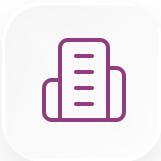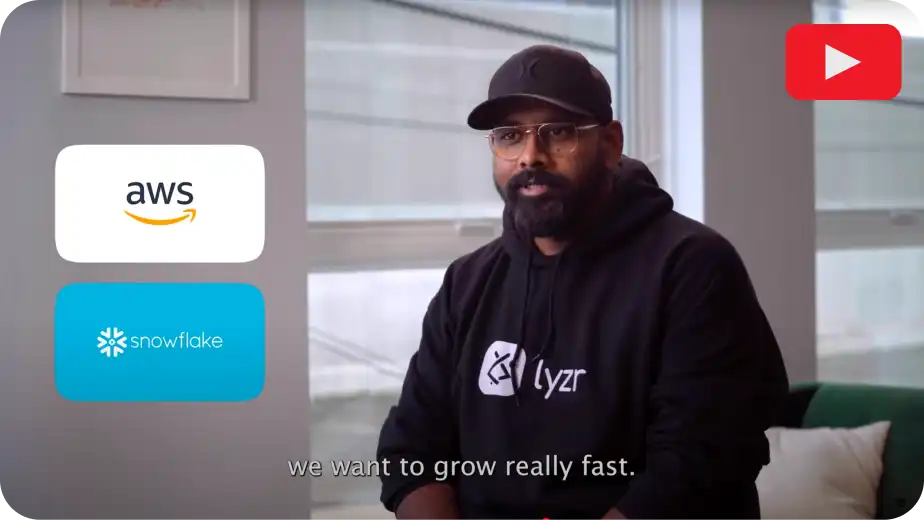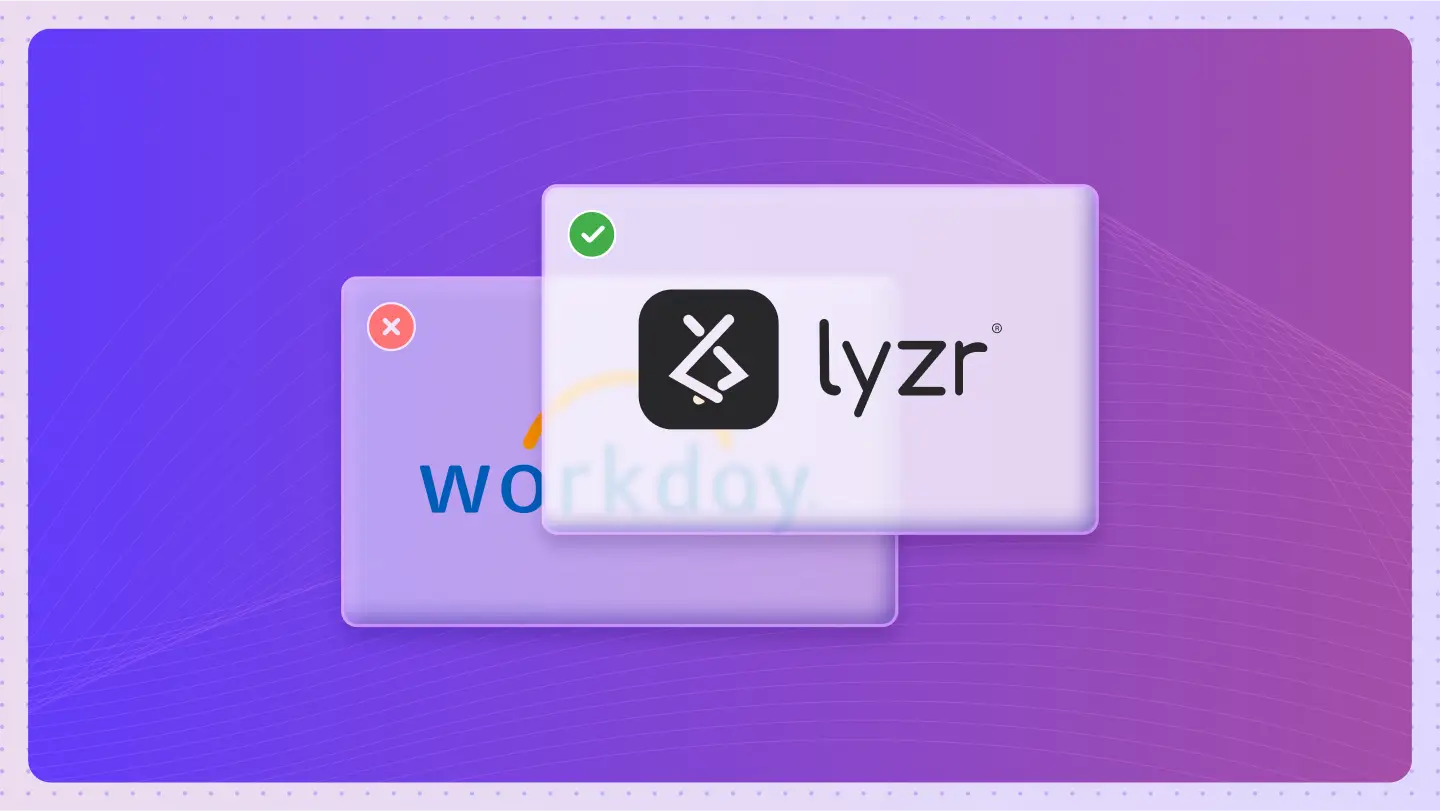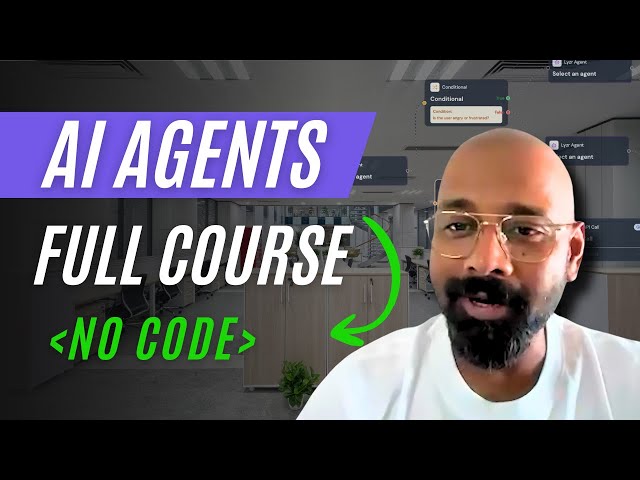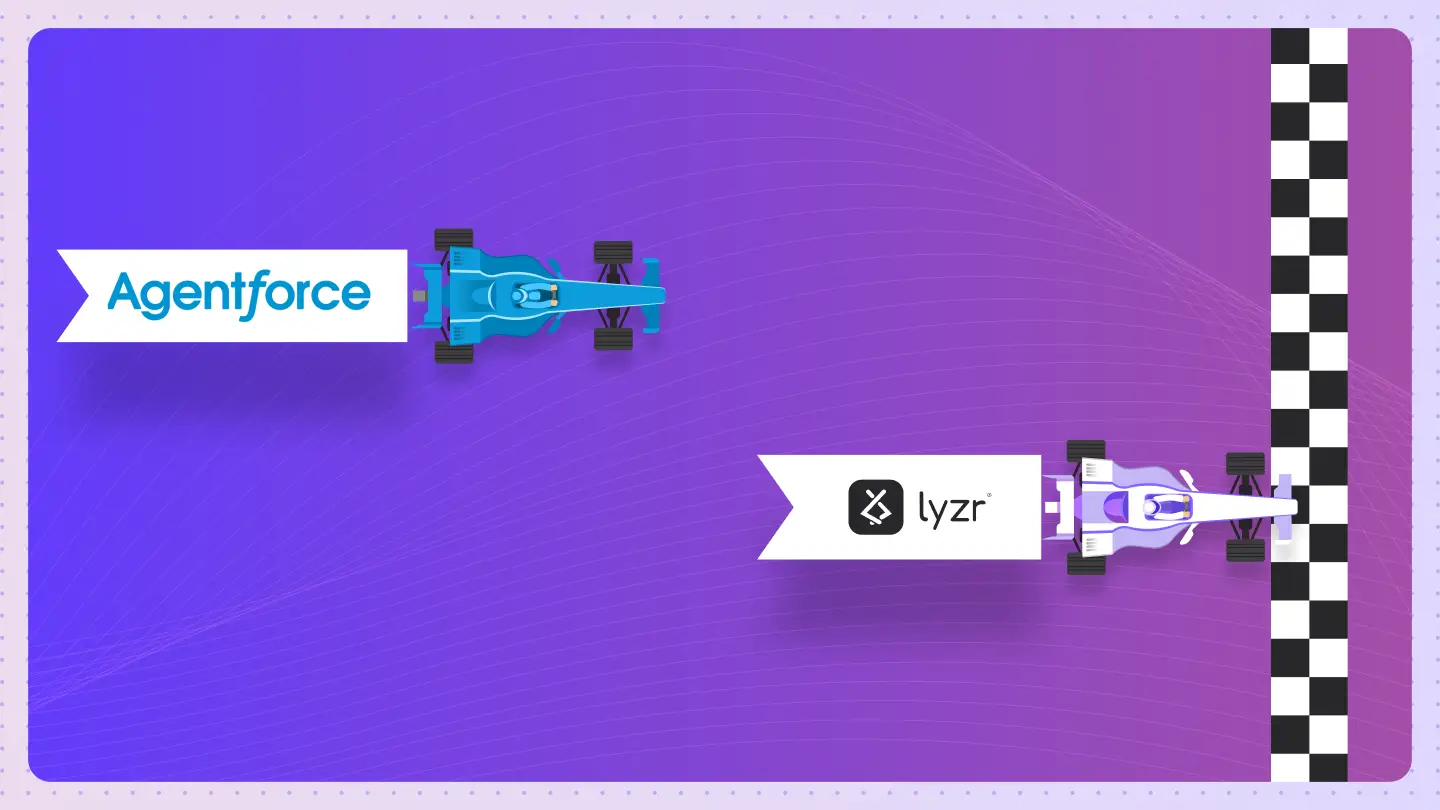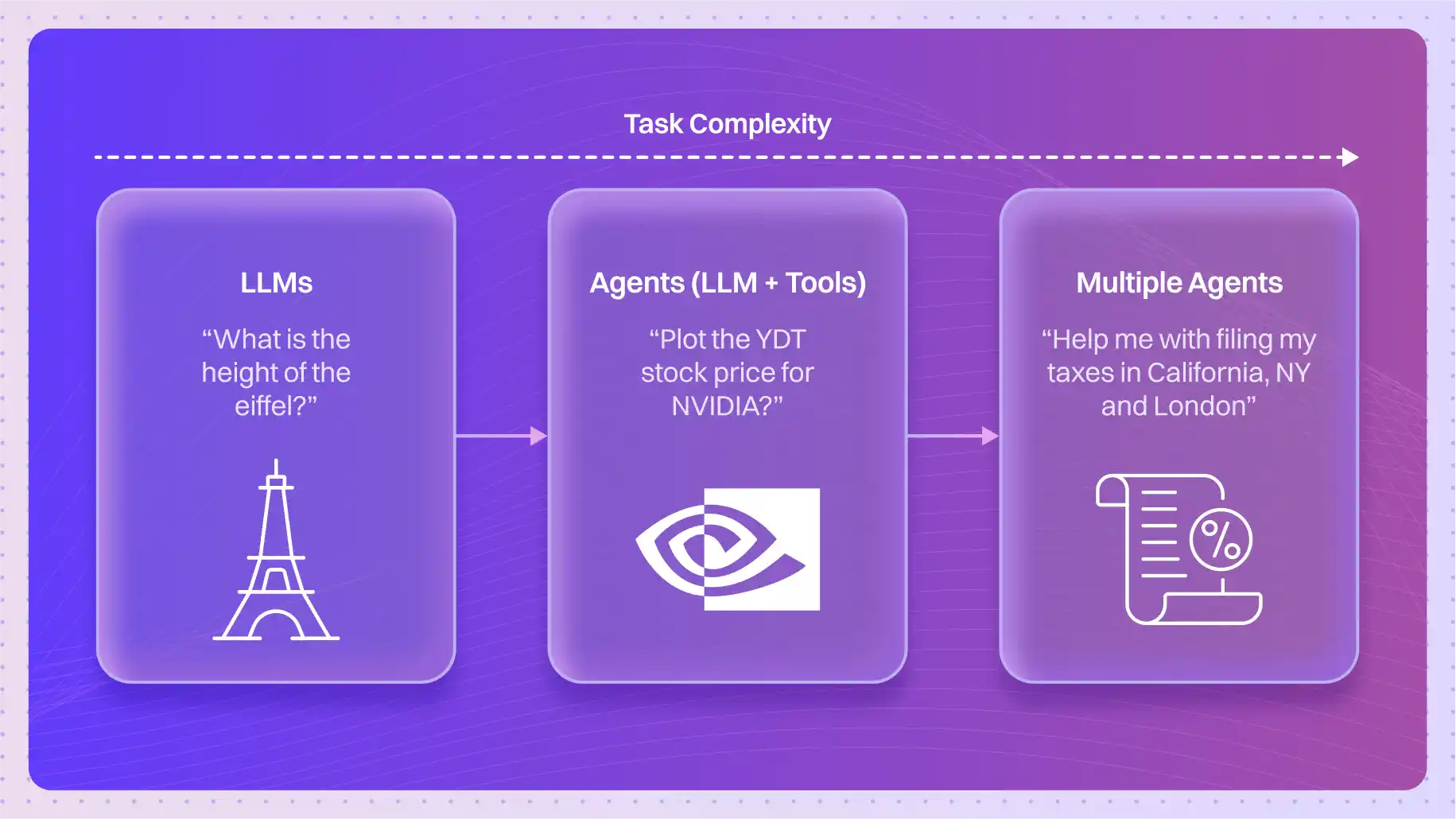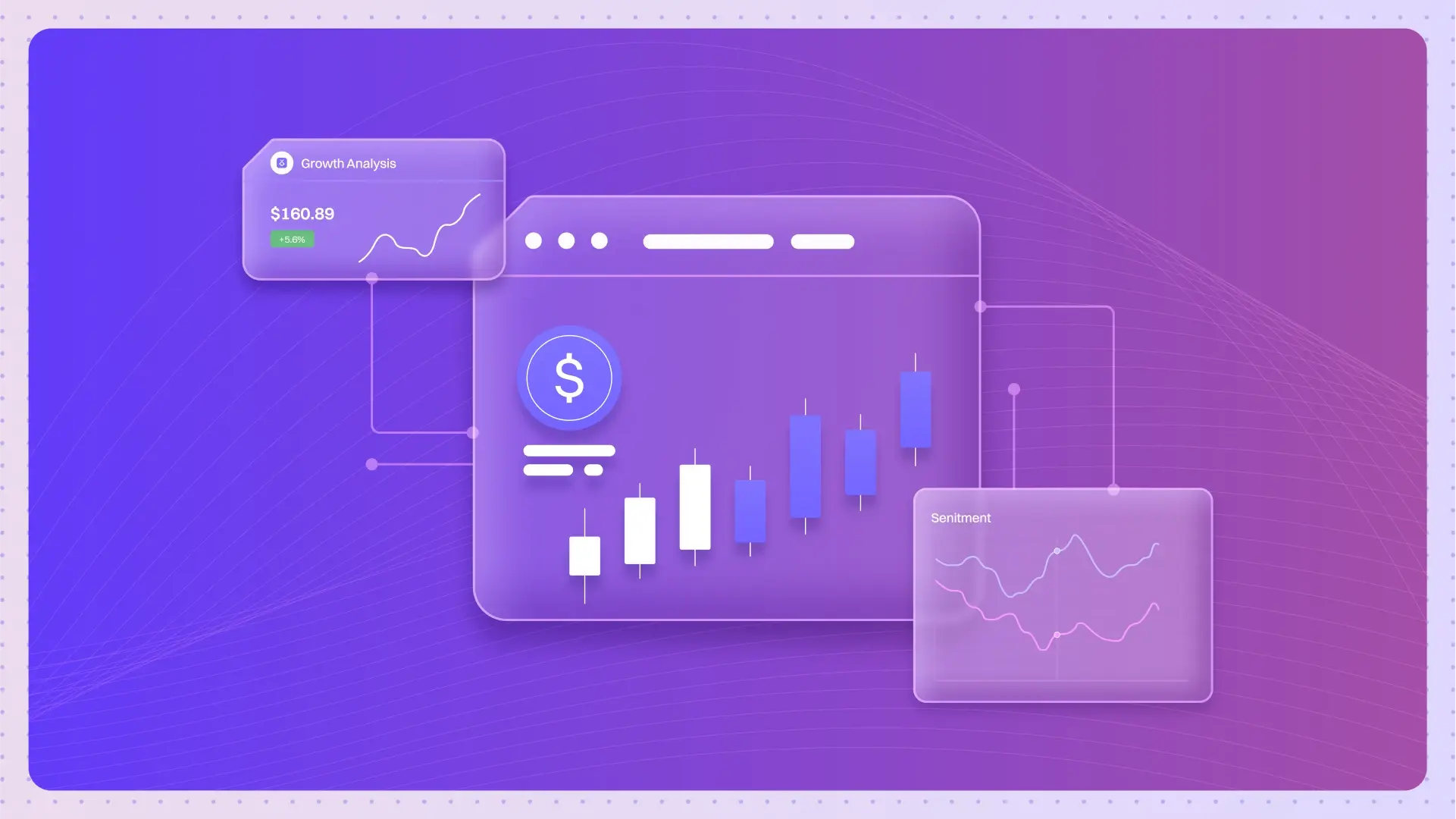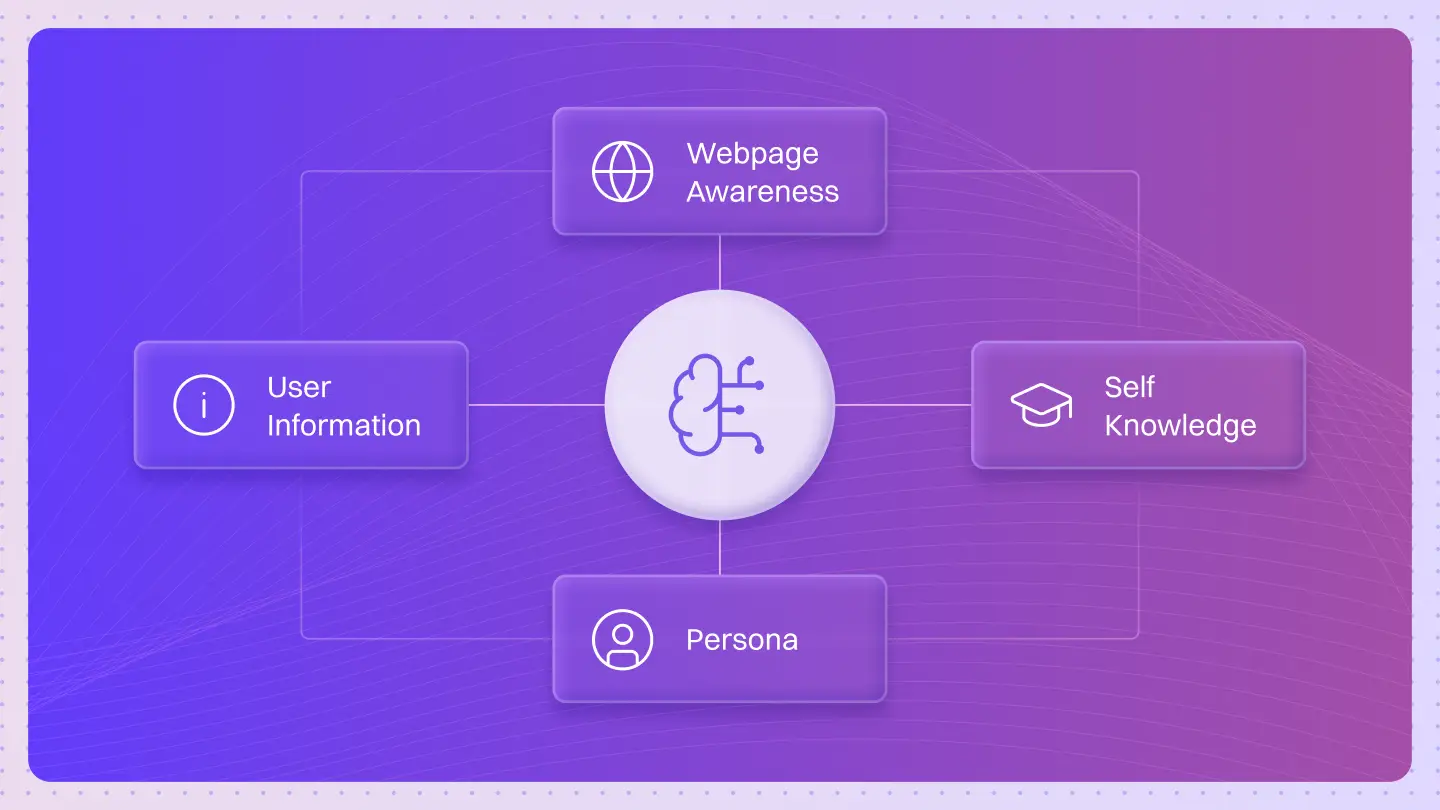Table of Contents
ToggleWhen teams start searching for an Agentforce competitor, the question isn’t just “what else is out there?”
It’s usually more specific: Is there a platform that can do what Agentforce does, but 2x faster, 3x more flexible, and scalable without the usual roadblocks?
Agentforce has been a dependable choice, especially for Salesforce-driven workflows. But here’s the catch, once businesses grow, three challenges usually pop up: workflows feel too rigid, costs start climbing, and stretching a single-purpose tool across departments becomes messy.
Sound familiar?
Meanwhile, the market isn’t standing still.
New AI agent platforms are pushing the boundaries, automating complex tasks, improving customer experiences, and scaling operations in ways that older systems can’t keep up with. So the real question is: do you want to stay locked into yesterday’s model, or shift to something built for the future?
That’s exactly where Lyzr steps in. Designed to close the gaps teams run into with Agentforce, Lyzr makes it faster and easier to build, test, and deploy AI agents across any function, helping businesses scale without friction.
In this blog, we’ll unpack why Lyzr is quickly becoming the go-to Agentforce competitor, what sets it apart, and what organizations should know before making the switch.
Why are teams looking for an Agentforce alternative?
Agentforce has built a strong reputation, particularly within Salesforce ecosystems. But as companies scale, the platform often falls short. Teams quickly discover a few recurring challenges:
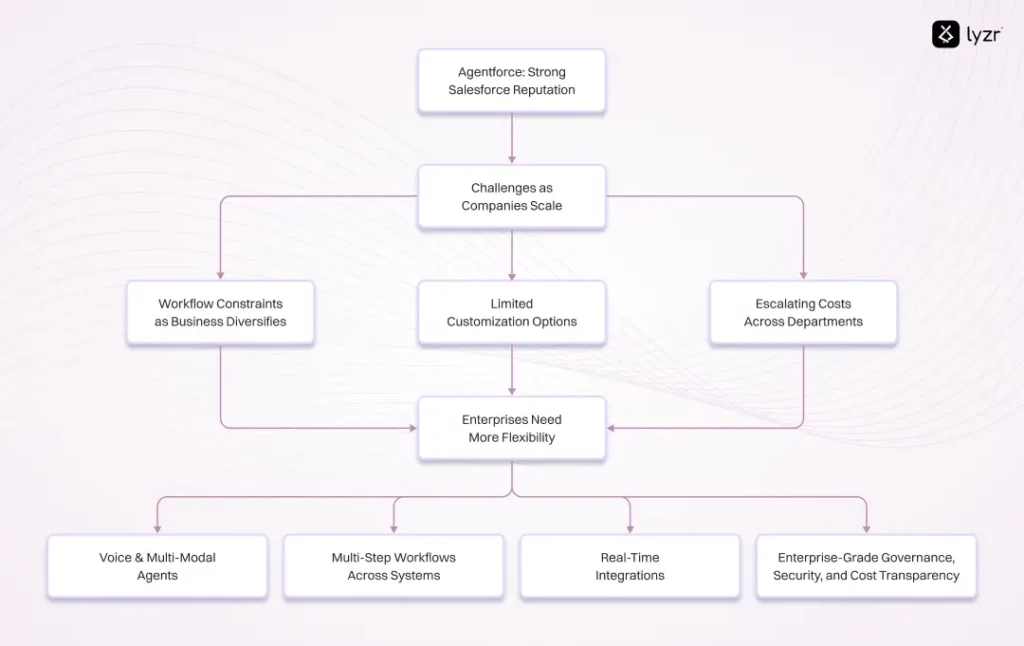
- Workflows become constrained as the business diversifies.
- Customization is limited.
- Costs escalate rapidly as agent usage expands across departments.
The result? Business processes become harder to manage, and manual work piles up.
Beyond these limitations, enterprises today expect far more from their agents. It’s no longer just about text-based tasks. Modern business demands include:
- Automation that streamlines operations and reduces repetitive work.
- Voice interactions for better user experiences.
- Multi-step workflows that span multiple systems.
- Real-time integrations that connect seamlessly across tools.
These capabilities are no longer optional, they’re essential.
For decision-makers, the goal isn’t simply to move away from a familiar tool. It’s about finding a solution that empowers teams to scale smarter, experiment faster, and operate with confidence.
This is where advanced AI agent platforms like Lyzr come in. By automating complex workflows and reducing manual intervention, Lyzr delivers flexibility without compromising on governance, security, or cost transparency.
How does Lyzr stack up against Agentforce?
When you compare Lyzr and Agentforce, the differences go far beyond a feature checklist.
Agentforce works well in Salesforce-bound environments, but as businesses scale, teams need speed, flexibility, and enterprise-ready controls. That’s where Lyzr steps ahead.
Why Lyzr stands out:
- Tied to Salesforce only? Not with Lyzr. While Agentforce focuses on Salesforce, Lyzr runs across web apps, internal systems, multiple CRMs, and communication channels. Your agents go wherever your business works.
- Do business teams need developers for every change? With Lyzr, no. It offers a low-code visual builder for business users. Teams can deploy agents quickly without a steep learning curve.
- Worried about compliance and security? Lyzr has you covered. Enterprise governance includes SSO, role-based access, audit logs, and multi-environment deployments, perfect for regulated industries.
- Managing agents across multiple systems a headache? Lyzr centralizes everything in a single interface, making operations simpler and more efficient.
- Want agents that can talk, not just type? Lyzr supports native voice and multi-modal interactions via ElevenLabs, while Agentforce is limited to text responses.
Feature-by-feature comparison:
| Feature | Agentforce | Lyzr |
|---|---|---|
| Deployment | Salesforce-focused | Platform-agnostic: web apps, CRMs, internal systems, communication channels |
| Builder Experience | Developer-dependent | No-code for business teams + APIs/SDKs for developers |
| Governance & Compliance | Basic | SSO, role-based access, audit logs, multi-environment support |
| Management Interface | Multiple systems separately | Centralized interface for all agents |
| Voice & Multi-modal | Text-only | Native voice + text support via ElevenLabs |
For example, a retail team using Agentforce might be able to manage customer chats effectively, but automating internal approvals across departments would require complex workarounds. With Lyzr, the same team can design one agent that handles both customer interactions and internal workflow approvals seamlessly.
Lyzr’s workflow automation simplifies these processes, reducing manual tasks and improving overall productivity.
Where Lyzr pulls ahead with autonomous ai agents
Lyzr’s value isn’t just about features, it’s about the real-world capabilities those features unlock.
Teams report building and deploying Lyzr agents in hours rather than days, thanks to the low-code builder combined with developer SDKs.
Lyzr enables teams to build AI agents and customize AI agents using a low code tool and natural language specifications, making the process accessible and efficient.
As an AI powered and AI powered automation solution, Lyzr empowers organizations to automate tasks and optimize workflows. Multi-modal capabilities allow agents to interact via text, voice, and API-based actions in a single workflow.
Lyzr supports communication channels across multiple channels and enables omnichannel communication, which enhances customer experience and customer engagement.
For example, a bank agent can answer customer queries via chat, verify documents internally, and send audio notifications to managers, all orchestrated seamlessly. Lyzr’s task automation and ability to automate repetitive tasks help streamline operations and result in saving time for teams. The agent builder also supports the creation of autonomous agents and autonomous AI agents that can perform tasks independently. These features support customer retention and optimize the sales process for sales teams and marketing campaigns.
Additionally, Lyzr allows enterprises to choose the AI model best suited for each task. Teams can leverage OpenAI for summarization, DeepSeek for document retrieval, or custom models for specialized workflows. Lyzr’s integration with other tools and platforms allows for advanced data analysis and provides actionable insights for informed decisions.
This flexibility prevents vendor lock-in, unlike Agentforce, which is primarily tied to Salesforce’s ecosystem.
Enterprise-grade governance is another differentiator. Features like role-based access control, audit trails, and multi-environment deployments not only reduce operational risk but also accelerate approval and deployment cycles. Lyzr acts as a centralized hub for managing data, knowledge base, and agent workflows.

To put it into perspective, Agentforce is like a sports car: fast in a single lane. Lyzr is like a modular SUV: flexible, scalable, and ready to take on multiple terrains, adapting to the evolving needs of a growing enterprise.
Lyzr is an incredibly powerful software solution whose strength lies in its flexibility and integration capabilities. It is considered the best alternative and a leading agentforce alternative among agentforce alternatives to Salesforce Agentforce within the Salesforce ecosystem.
A visual look: Agentforce vs Lyzr key features positioning
The difference in platform positioning can be summarized visually with the following Mermaid diagram:

This illustrates that while Agentforce is highly specialized for Salesforce workflows, Lyzr provides broader flexibility, supporting multiple environments, AI models, and agent types across departments.
Who should seriously consider Lyzr?
Organizations that are looking for an Agentforce competitor often fall into three categories:
- Enterprises needing control: Companies with multi-department workflows, compliance requirements, and security policies benefit from Lyzr’s built-in governance features. Lyzr helps each company streamline business processes and improve operational efficiency by providing robust control over hardware and data security.
- Development teams seeking flexibility: APIs and SDKs allow developers to extend agents, integrate with existing systems, and customize workflows without limitations. Lyzr empowers users and user teams to extend and tailor agent workflows to fit their unique requirements.
- Business teams seeking speed: No-code visual builders empower non-technical teams to prototype, iterate, and deploy agents quickly without heavy IT involvement, helping to streamline operations for non-technical users.
For instance, a commercial bank replaced multiple fragmented Agentforce agents with a single Lyzr agent handling internal approvals, KYC verification, and customer notifications. This reduced processing time by 40% and minimized human error, demonstrating Lyzr’s ability to handle complex workflows at scale.
Migration and ROI: What switching ai agent platforms actually looks like
Migrating from Agentforce to Lyzr is straightforward, but planning ensures a smooth transition. A typical migration involves auditing existing workflows—analyzing data at this stage is crucial to ensure a smooth migration—piloting a few agents in Lyzr, running parallel operations to verify parity, and then fully transitioning production workflows.
Estimated Migration Timeline
| Organization Size | Migration Time Estimate | Notes |
|---|---|---|
| Small team (1–5 agents) | 1–2 weeks | Quick, minimal risk |
| Mid-size (5–15 agents) | 3–5 weeks | Includes testing and integrations |
| Enterprise (15+ agents) | 6–10 weeks | Phased approach for compliance and approvals |
ROI Considerations:
Switching to Lyzr can reduce operational costs through transparent usage pricing, accelerate workflows by 30–40% through multi-modal agents, and prevent future vendor lock-in with open AI integrations.
Lyzr provides a full picture of operational performance by integrating and analyzing comprehensive data, enabling teams to make informed decisions that drive measurable gains in efficiency and scale. Teams typically reach break-even within six months.
Final thoughts
Choosing an Agentforce competitor isn’t about abandoning a familiar tool, it’s about selecting a platform that grows with your ambitions. Agentforce works well for Salesforce-bound workflows, but Lyzr empowers teams to scale faster, integrate more deeply, and innovate without limits.
For enterprises and teams looking to expand their AI agent capabilities, Lyzr stands out as the smarter, more flexible, and future-ready choice.
Explore Lyzr Agent Studio today and see how switching can accelerate your agent workflows.
Have a unique use case? Book a demo with us today
Book A Demo: Click Here
Join our Slack: Click Here
Link to our GitHub: Click Here


